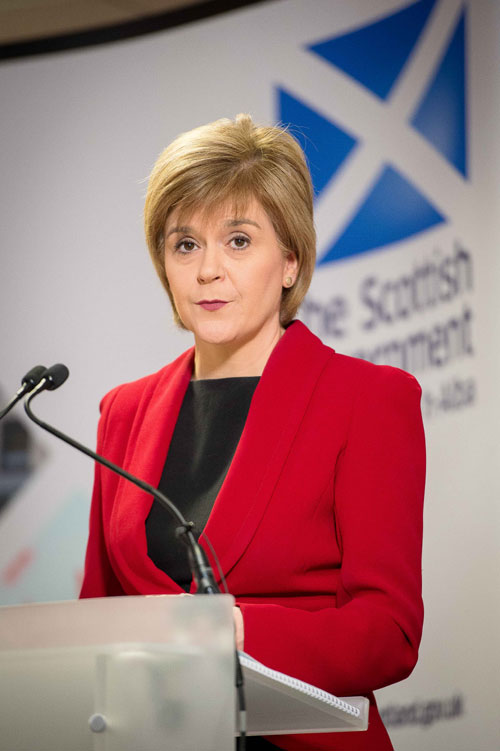FIRST Minister Nicola Sturgeon will set out clear proposals for reform of the European Union in a major speech in Brussels today.
In her first EU address as First Minister, Ms Sturgeon will make clear that continuing membership is vital to the Scottish economy – and that positive changes can be made from within the existing treaty.
Challenging the Prime Minister to make a positive case for EU membership and to set out his proposals for reform, the First Minister will highlight a number of key priorities for Scotland.

These will include more local decision making on health and social policies to allow countries to target key issues; greater focus on key areas such as developing the single market across the EU in Energy and Digital Services; and allowing localised discretion in implementing regulation.
Addressing the European Policy Centre, Ms Sturgeon will say: “We don’t believe that reforms require treaty change. They can be implemented within the existing Treaty framework. And we believe that reforms should address two priorities.
“The first is straightforward. The EU should focus on areas where joint working and co-operation will make a tangible difference to the lives of its citizens.”
The First Minister will also highlight reform on public health: “In some areas, that means that the EU should leave member states with the autonomy to tackle pressing problems. Public health is a relevant example for Scotland and for other countries.”
Ms Sturgeon will also recommend changes to regulation: “The Scottish Government’s second priority is regulatory reform. To give an example of this, Scotland has contributed to the reforms which were agreed last year to the Common Fisheries Policy.
“They involve changes to allow more decisions to be made at a regional sea basin level rather than an EU level – something which will make regulations more proportionate, and less burdensome for the industry.”
The First Minister will also call on the UK Government to set out their proposals: “Instead of just arguing against the risks of change, it should promote the EU’s achievements.
“If it fails to do that, then even if it wins the vote, it may not resolve the issue.”
